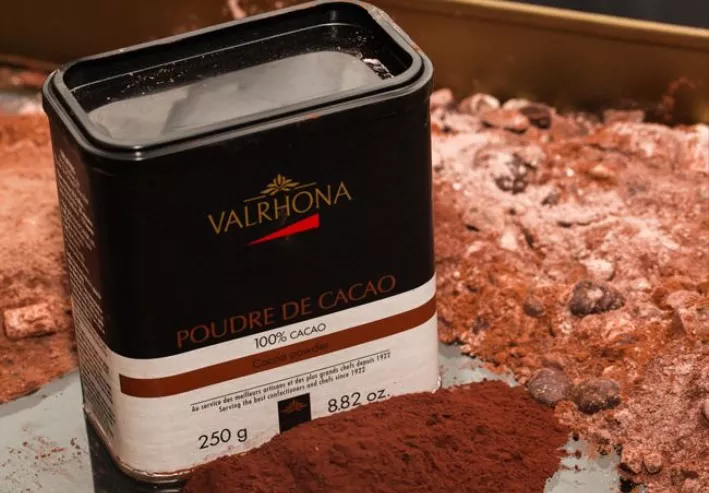Cocoa, often enjoyed as a warm, comforting beverage, is a staple in many households. Whether in the form of hot chocolate, cocoa powder in recipes, or chocolate bars, cocoa is loved for its rich taste and indulgent texture. But have you ever wondered if cocoa can make you sleepy? In this article, we will dive into the science behind cocoa and its potential effects on sleep, exploring the different compounds found in cocoa, their impact on the body, and whether cocoa can help you unwind or keep you awake.
What is Cocoa?
Cocoa is made from the beans of the cacao tree (Theobroma cacao). These beans are harvested, fermented, dried, roasted, and processed to create the cocoa powder and cocoa butter used in chocolate products. Cocoa contains a variety of compounds, including caffeine, theobromine, and flavonoids, which contribute to its effects on the body.
Cocoa and Sleep: The Connection
To understand whether cocoa makes you sleepy, it’s important to look at its components and how they affect sleep. The primary ingredients in cocoa that might influence your sleep patterns are caffeine and theobromine, both of which are stimulants. However, cocoa also contains compounds that may have a calming effect on the body. Let’s examine these in more detail.
Caffeine: A Known Stimulant
Caffeine is one of the most well-known stimulants, found in coffee, tea, and chocolate. It works by blocking adenosine receptors in the brain. Adenosine is a chemical that promotes sleep and relaxation. When caffeine blocks these receptors, it prevents drowsiness and increases alertness.
Cocoa does contain some caffeine, but the amount is much lower compared to coffee or tea. On average, a serving of cocoa (about 1 tablespoon of cocoa powder) contains around 12 milligrams of caffeine, while a cup of coffee contains approximately 95 milligrams. Therefore, if you’re sensitive to caffeine, consuming cocoa late in the day may still make you feel more alert, but it is unlikely to have the same stimulating effect as coffee.
Theobromine: A Gentle Stimulant
Another compound found in cocoa is theobromine. It is chemically similar to caffeine but has milder stimulant effects. Theobromine primarily affects the heart and muscles, causing a mild increase in heart rate and blood flow. It can also have a relaxing effect on the smooth muscles of the body, including those in the lungs, which can promote better breathing.
While theobromine does have a stimulating effect, it is much less potent than caffeine. In fact, for many people, theobromine is not strong enough to interfere significantly with sleep. However, in sensitive individuals, it may still contribute to feelings of restlessness or alertness.
Flavonoids: Promoting Relaxation
Flavonoids are a group of antioxidants found in cocoa. They are believed to have several health benefits, including reducing inflammation and improving heart health. In terms of sleep, flavonoids can also play a role in promoting relaxation. Studies suggest that cocoa flavonoids may have a calming effect on the nervous system, improving blood flow to the brain and encouraging a sense of well-being.
These compounds may help you feel more relaxed and reduce stress, which could, in turn, support better sleep. Flavonoids found in cocoa have been shown to increase the availability of nitric oxide in the body, which helps to relax blood vessels and improve circulation. This might lead to a sense of calm and relaxation, especially when consumed in moderate amounts.
Does Cocoa Have a Calming Effect?
Despite containing stimulants like caffeine and theobromine, cocoa can have a relaxing effect due to its high content of flavonoids. If consumed in small amounts, cocoa may help reduce stress and promote relaxation, making it an enjoyable, soothing beverage before bedtime for some people.
One factor to consider is how cocoa is consumed. If you make a cup of cocoa with a lot of added sugar, it might cause a sugar rush that can leave you feeling more awake. However, if you opt for unsweetened cocoa or use natural sweeteners, the drink may be more likely to help you unwind. The warmth of the beverage can also have a comforting, soothing effect, which might make it easier to relax and drift off to sleep.
Cocoa in the Evening: A Good Choice for Sleep?
So, is cocoa a good option for a bedtime drink? It depends on the individual and how your body responds to the various compounds found in cocoa. If you are sensitive to caffeine or theobromine, consuming cocoa too late in the evening could make it harder for you to fall asleep. However, for those who are less sensitive to these compounds, a small cup of cocoa may provide relaxation and comfort, potentially helping you sleep better.
Cocoa vs. Other Beverages for Sleep
While cocoa can have a calming effect for some people, there are other beverages that may be more beneficial for sleep. For instance:
Chamomile Tea: Known for its soothing properties, chamomile tea is often recommended as a natural remedy for insomnia. It contains apigenin, an antioxidant that binds to specific receptors in the brain, promoting relaxation and drowsiness.
Lavender Tea: Lavender is another herb known for its calming effects. Drinking lavender tea before bed can help reduce anxiety and improve sleep quality.
Warm Milk: Warm milk contains tryptophan, an amino acid that is a precursor to serotonin and melatonin, hormones that promote sleep.
These drinks contain compounds that specifically target relaxation and sleep. While cocoa may have a relaxing effect, it is not as effective as these other options when it comes to promoting sleep.
How to Maximize the Sleep Benefits of Cocoa
If you enjoy cocoa and want to incorporate it into your nighttime routine without it interfering with your sleep, there are a few things you can do to maximize its relaxing benefits:
Choose Unsweetened Cocoa: By opting for unsweetened cocoa powder, you can avoid the sugar rush that might make it harder for you to sleep.
Add a Calming Ingredient: Consider adding a pinch of cinnamon or a few drops of vanilla extract to your cocoa. These ingredients can enhance the relaxing effects of cocoa.
Limit Caffeine Intake: If you’re sensitive to caffeine, try to avoid drinking cocoa in large quantities or late in the evening. Opt for smaller servings and avoid consuming other sources of caffeine throughout the day.
Enjoy a Warm Drink: The warmth of the beverage can have a soothing effect, helping to relax your muscles and calm your mind. Drink it slowly to enjoy its comforting properties.
Conclusion
In conclusion, cocoa may not make you feel sleepy in the same way as other sleep-inducing beverages like chamomile tea or warm milk, but it can still have a relaxing effect on your body. The mild stimulants in cocoa, such as caffeine and theobromine, are unlikely to interfere significantly with sleep for most people, especially when consumed in moderation. However, for those who are sensitive to these compounds, it may be better to enjoy cocoa earlier in the day.
Cocoa also contains flavonoids that can promote relaxation, and the act of drinking a warm beverage can be inherently calming. So, while cocoa might not guarantee sleepiness, it can certainly be part of a calming bedtime ritual. Ultimately, whether cocoa helps you sleep depends on your individual response to its compounds and how it fits into your overall routine.
Related topics:

























